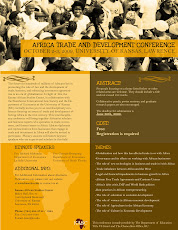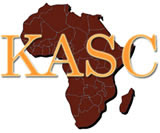AFRICA: Scientists call for brain drain help
http://www.universityworldnews.com/article.php?story=20090626122522939
![]() Leading African scientists have urged rich nations to help fight the brain drain by investing in rebuilding Africa's higher education sector and supporting research efforts by young scientists. In a statement to heads of state and governments attending the G8+5 summit in Italy next month, the Network of African Science Academies said a third of all African scientists now lived and worked in developed countries.
Leading African scientists have urged rich nations to help fight the brain drain by investing in rebuilding Africa's higher education sector and supporting research efforts by young scientists. In a statement to heads of state and governments attending the G8+5 summit in Italy next month, the Network of African Science Academies said a third of all African scientists now lived and worked in developed countries.
"This outflow represents a significant loss of economic potential for the continent, especially in today's global society where scientific and technological knowledge drive development," the network said in the statement titled Brain Drain in Africa. According to some estimates, Africa needs one million more researchers to tackle its critical needs.
The scientists said the solution to the brain drain challenge lay primarily with Africa but that G8+5 nations could help by financing improvements in science and technology infrastructure.
The network groups scientific academics from numerous countries - Cameroon, Ghana, Kenya, Madagascar, Nigeria, Senegal, South Africa, Sudan, Tanzania, Uganda, Zambia and Zimbabwe - a well as the African Academy of Sciences.
The scientists stressed their conviction that a sustainable economic future for Africa was in strengthening the continent's science and technology capacity: "This goal can only be met if Africa educates and retains a critical mass of world-class scientists and technologists with the knowledge and expertise to address the continent's key scientific, technological and economic problems."
In the 1960s and `70s, Africa boasted some of the developing world's finest universities. But a steep decline in funding, political indifference and widespread conflict created conditions in which the opportunity to pursue professional careers was stunted.
"Universities have been hollowed out by decades of brain drain and now find themselves severely handicapped by dilapidated facilities and inadequately trained staff," the scientists said in the June statement. Africa currently produces just 1.4% of all articles published in peer-reviewed international journals, according to the Science Citation Index.
The network said that while migration of African scientists represented a personal decision shaped largely by individual assessments of career opportunities, governments could influence those decisions by improving the living and working conditions and career prospects of scientists at home.
It emphasised that scientific progress depended on the free flow of information and people, and denying talented individuals opportunities elsewhere was not an option. Rather, the scientists called for "a more sophisticated approach" that recognised S&T capacity-building opportunities afforded by migration to developed countries, and that even the poorest nations needed a critical mass of scientists and technologists.
They said although some African governments and other continental bodies were taking steps to reduce the brain drain through initiatives such as increasing the percentage of gross domestic product devoted to S&T, their efforts continued to be insufficient.
"Africa remains the world's least scientifically proficient region and, not coincidentally, the world's poorest continent," the statement continued. "We acknowledge that primary responsibility to address such critical problems rests with the governments of Africa. But external assistance will remain instrumental for poor countries that do not have sufficient resources to adequately invest in systems of higher education and research."
It urged G8+5 countries to invest in rebuilding universities and research centres in Africa, extend financial support to young African scientists to pursue postgraduate and postdoctoral training in African and other developing countries, launch centres of excellence in Africa in areas of critical importance to development, broaden efforts to encourage Africa's diaspora to help address critical science-based issues and engage African scientists in joint projects, and honour commitments made at the 2005 G8 summit.
"The solution to the brain drain challenge lies primarily with Africa," the statement said. "But G8+5 countries can help by financing improvements in Africa's S&T infrastructure, and by creating pathways for interaction that turn today's largely one-way flow of African scientists into a two-way flow of interaction between Africa's diaspora and home-based scientific communities."


0 comments:
Post a Comment